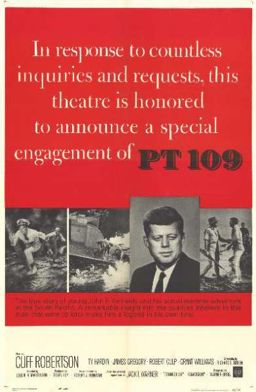« Frank Tashlin: Day after Day | Main | Jimmywork »
July 23, 2007
The Dream Life

The Dream Life: Movies, Media, and the Mythology of the Sixties
J. Hoberman
The New Press - 2003
I'm of a mixed mind about J. Hoberman's book The Dream Life. At over 400 pages, there are times when I think there is too much, and other times when some of his themes could have been explored even more fully. While his book explores the symbiotic relationship between Washington D.C. and Hollywood in the Sixties, Hoberman goes beyond to explore Watergate and the beginning of the Reagan years.
Hoberman discusses how the Western, particularly the twilight Western, became a viable genre again during the years that Texan Lyndon Johnson was President. Based on that premise, it would follow that more there should have been more discussion of Dwight Eisenhower. It would follow that there would be a connection of Ike being from Texas, an American war hero who saved Europe from Hitler, and President of the United States during an era when Westerns were at their peak both on the big and small screen.
Throughout The Dream Life, Hoberman discusses Westerns as illustrations of a variety of political agendas. That the revisionist Westerns such as Little Big Man and Soldier Blue were indirect critiques of the war in Vietnam was pretty much understood during the time those films were released. Hoberman discusses how John Ford attempted to reframe that same conflict as a documentary with the same archetypes as in his own Westerns.
In terms of straight film history, one of the more interesting parts is about the making of the film PT 109, based on the book about JFK heroism in the South Pacific during World War II. Unknown to those of us who were in the latter part of elementary school was Joe Kennedy's involvement with film production or Gloria Swanson, or John Kennedy's relationship with Gene Tierney. According to Hoberman's sources, Warren Beatty was Jackie Kennedy's choice to portray her husband. Beatty turned down the role. Rejected by JFK were Peter Fonda, Jeffrey Hunter and Warner Brothers contract player Edd "Kookie" Byrnes. Raoul Walsh was initially proposed to direct until Kennedy saw Marines, Let's Go. Lewis Milestone got the job only to be replaced by Leslie Martinson. If the film PT 109 was to be helmed by a veteran director, it seems surprising that John Ford was not offered the job as he had made the PT boat film They Were Expendable, plus he was one of the most visible Irish-Catholics in Hollywood.
More might have been made of LBJ pal Jack Valenti's appointment as head of the MPAA. While the new production code was introduced in part to allow Hollywood to compete directly with the more adult films imported from Europe, it is also an example of liberalism turned on its head. Whatever idealism Jack Valenti may have had in creating the code in freeing American filmmakers instead turned into a method of censorship of expression. While the code was effective in diminishing interest in imported films, Valenti was proven wrong in assuming that Americans would distinguish between differing types of films marked as being for adult audiences, lumping A Clockwork Orange and The Damned with Deep Throat and Debbie Does Dallas.
Of course Hoberman's book lacks a definitive ending with Watergate lawyer turned actor turned potential Presidential candidate Fred Thompson's presumed candidacy. A more complete history of Washington D.C. and Hollywood might not only discuss how Richard Nixon's career began with his involvement on the House of Un-American Activities that begat the Hollywood blacklist, but also the defeat of a one-time Hollywood actress who turned to politics, Helen Gahagan Douglas.

Posted by Peter Nellhaus at July 23, 2007 01:43 PM
